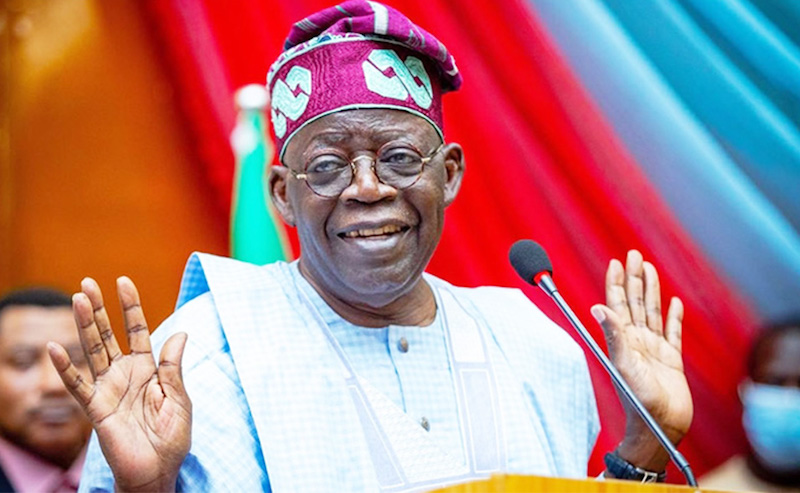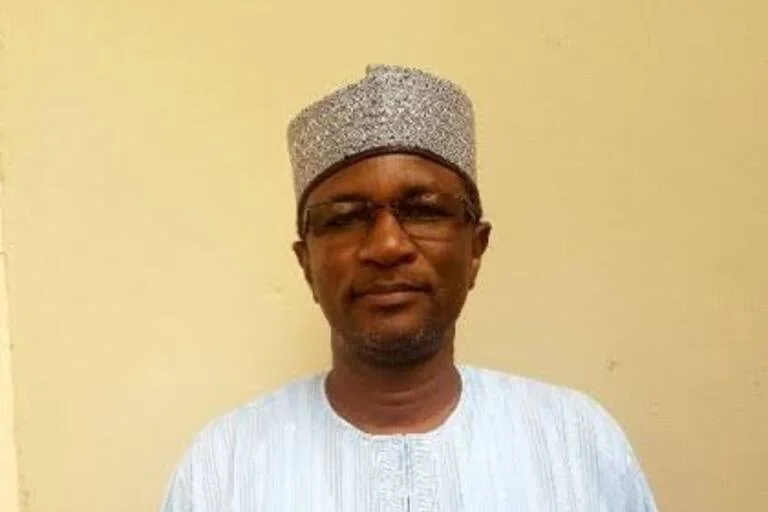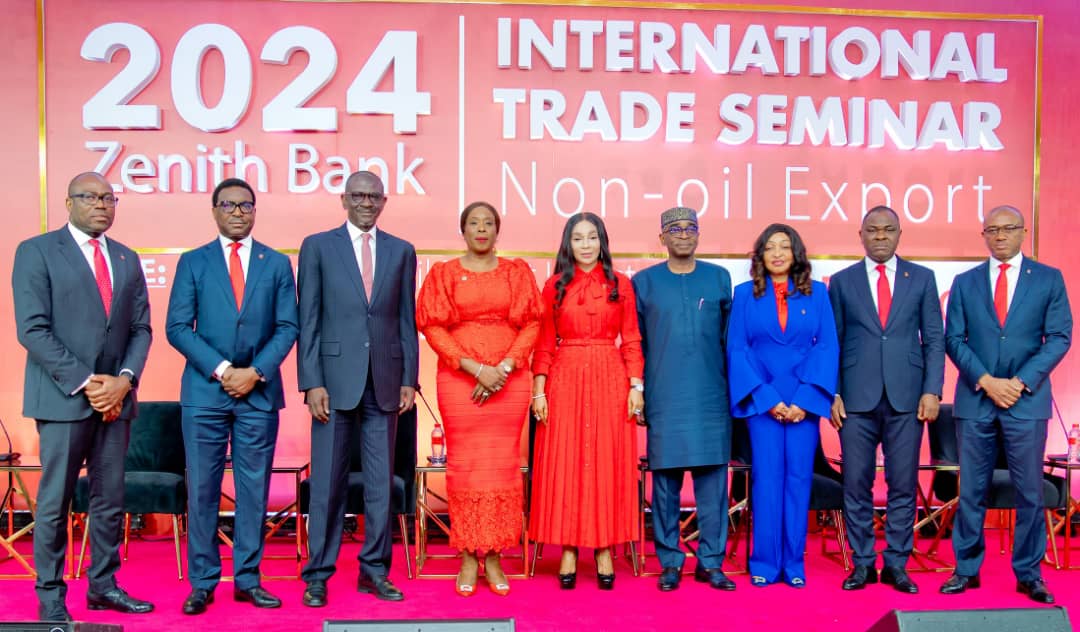By Nnamdi Ojiego
Professor Wasiu Lanre Adeyemo is the Chief Medical Director, CMD, of Lagos University Teaching Hospital, LUTH. In this interview, the Professor of Oral and Maxillofacial Surgery speaks on his vision to transform LUTH from a tertiary to a quaternary health facility; the permanent cure for sickle cell anaemia, the ‘Japa’ syndrome and what the government is doing to halt the trend, among other issues. Excerpts:
Can we have an insight into your background?
Well, I came from a very humble background, so I didn’t know what I wanted to be until I got to secondary school when I joined science class. Then in secondary school, if you are in science class, you either become a doctor, a pharmacist or an engineer.
And so, I applied to the University of Ibadan to study Dentistry between 1988 and 1995. It was supposed to be a six-year course but it turned out to be seven years because of strike actions and the June 12 crisis. After my NYSC, I worked in Katsina General Hospital for one year, and from there, I came to LUTH to specialize in Oral and Maxillofacial surgery.
I have been in LUTH for more than 20 years. I did my residency training from 1999 to 2004. From there, I proceeded to Germany for my PhD programme. I came back in 2006 to join the University of Lagos as a lecturer. I became a consultant in 2007. I became a professor in less than 10 years which is usually a record in the university.
I came to the University of Lagos in 2006 and became a professor in 2015, that’s nine years. In 2014, I became the Deputy Chairman, Medical Advisory Committee of the university, which I did for four years. In 2019, I became the Chairman, Medical Advisory Committee and the Deputy to the Chief Medical Director. By the special grace of God, I was appointed the CMD by the President in March 2023.
What would you describe as the greatest motivation for your career?
God! For those who believe in God, you know that there’s really nothing you can do without God. If God has destined you would be a medical doctor, you’re going to be.
So apart from God, the motivation is that towards the tail end of my medical school, I saw some of my senior colleagues who were already doctors, senior registrars and consultants, and they were young.
I looked at them and I wanted to be like them. And of course, when I started residency training, I also saw so many people who were mentors and I wanted to be like them. However, our intention then was just to be as good as one can be, and not necessarily that you want to hold any position in the hospital or the university.
Just a little above one year since you assumed office as the CMD, what would you say are the major challenges you are facing?
There are many challenges. LUTH is situated in an entity called Nigeria. So, challenges of the country definitely must also affect the institution but if I have to be specific, among the many challenges, two are very important.
One, the issue of power, electricity. Without electricity, you cannot run an institution like ours anywhere in the world. Two, peculiar to us is the number of personnel that we have on ground. I don’t want to say anything more about the japa issue. But you know, there are basically two reasons why people leave the country for greener pastures.
One is infrastructure and equipment. The second one is economic. The money that they are giving to people here is not comparable to those outside the country. Those are the two major reasons, but the irony of our situation in the country is that in the last four, or five years, particularly the last year, the government is spending a lot of money in putting infrastructure in place.
The LUTH of 2019/ 2020 is quite different from the LUTH of 2023/2024. The government has increased allocation to the health sector in terms of putting infrastructure in place. A lot of renovations are taking place in the institution and equipment that we never thought of getting in years to come is being procured.
Retaining Trained Manpower
However, I realized that the irony is that while the government is putting a lot of money into infrastructure, people are going away because of economic reasons, meaning that you are putting in infrastructure, but you now have fewer people to manage them. But the government is very much aware because, after the COVID-19 outbreak, the government realized that our health facilities need a lot of upgrades.
A committee has been set up to halt the ‘Japa’ trend and I believe that we are going to start seeing it in the next few months. There’s a need to empower people in terms of the amount of money they get, in terms of monthly salary, because they need to survive, and in terms of training, and putting structure in place for them to have a reason to stay in the country.
N200 million spent on power supply
And in terms of power, let me tell you, in this hospital, we pay an average of between N180 and N200m on power every month. However, it’s heartwarming to note that the government is putting a lot of money into the infrastructure, particularly the power.
They’ve also encouraged us to get renewable energy. If you go around the hospital now, we have installed over 300 solar-powered street lights around the hospital. Also, the government has provided the money for us to put solar power inverters into some critical areas in the hospital like in our emergency units, children and adults’ wards, blood bank, labour ward and theatre, among others.
We wish we had much more money than that, we would have covered virtually everywhere but I can assure you that the government is planning to give us more money to cover many areas with solar inverters.
We are also making plans as a hospital from the money allocated to us yearly, to make sure that at least 20/25% of our budget is put on solar power so that the hospital is going to be covered. I believe that the issue of power is going to be a thing of the past in the next year. Also, people do come here to support us.
They are non-governmental organizations, churches, mosques, and individuals who come here to ask what they can do for us as CSR. Somebody has agreed to cover about two or three of our wards with solar power apart from other things he has promised to do for us.
So, what innovations have you brought on board in terms of research, training and development?
There are basically three objectives of the hospital, talking about its mandate as a teaching hospital are patient care, research, as well as education and training. Let me start with research because I’m a professor and a researcher, and I need to bring in some innovations to show who I am.
So, when I came in, you know, LUTH is associated with the University of Lagos, without the University of Lagos, it would be a glorified general hospital. So, the bulk of our researchers are professors and lecturers in the university.
Secondly, we also have resident doctors who are undergoing training to be specialists, and whether they want to specialize with West Africa College of Surgeons or West Africa College of Physicians, they must also do research. So, what we have done is to empower them. For resident doctors, we have set up a research grant committee that is going to make funds between N2m and N3m available for them.
Prior to now, research conducted by a resident doctor is from their pocket, and there’s nowhere in the world where they do that. Research is sponsored. So, we have made up our mind and set up the committee, and we have set all the criteria. Once people have met the criteria, they would get the grant.
That is the very first innovation that we brought in. When I was the deputy CMD, I introduced, for the very first time, the International Conference for LUTH. We started in 2020 and it is held annually.
So, what do we do? We bring in researchers, and experts, locally and internationally, to come and give us symposium lectures relevant to what we are doing. Then also we ask people from all over the world to send abstracts, to come and make presentations.
I’ve also done that in terms of research. As we have more money, we are going to include other researchers in the hospital apart from resident doctors and consultants. We have about nine schools in LUTH and some of those students also do research. So that is what we have done in terms of research, training and capacity building.
Nuclear medicine
The government is giving us money this year to have cardiac catenation lab. The government is devoting about N1.5b for that. Don’t forget that LUTH, since 2019, has the best cancer centre not only in Nigeria but also in West Africa. Between 2019 and 2024, we’ve seen over 11,000 patients. So, the federal government used that as a proof of concept between LUTH and NSIA, Nigerian Sovereign Investment Authority.
Believe me, it was a concept that nobody thought was going to work. Over the last four or five years, it has worked to the extent that the government is now using that model to establish an additional 10 cancer centres all over the country.
The very first question people were asking when it was commissioned by the president then was that you cannot have an international five-star cancer centre that is comparable to any part of the world without complementing it with nuclear medicine. Nuclear Medicine includes PET scans, spread scans, cyclotrons and so on, to aid diagnosis and also to monitor the patients to make sure that quality of life is better and also the survivor is also better.
In 2019 we thought it was something that would not be able to be achieved in 10 years but lo and behold, the government has also approved to be built at LUTH, a nuclear medicine centre. Also, Lagos has about 25 million people. Our facility needs to expand to go with that. LUTH was established in 1962 when the total Nigerian population was about 50m and I don’t think the population of Lagos State was up to five million then. Now, Lagos is about 25 million. So, we need to expand to accommodate the growing population. What we have done is to build a new outpatient clinic that’s going to consist of about 252 clinic rooms across the road, opposite the LUTH main entrance.
It’s a big hospital entirely and we are already into phase two of the project and the money for the second phase is already in the budget. We are already constructing a skywalk, pedestrian bridge that connects the new outpatient clinic.
Old People’s Home
Again, we need to take care of our elderly like it’s done in the United States and other developed countries. Many Nigerians are surviving to old age, yes, life expectancy is coming up, therefore; we need to take care of our elderly. There’s a specialty in medicine called geriatrics.
So, I also put it as part of my strategic plan and the FG has given us money to build a four-storey geriatric building for those who are elderly. We are also building a three-floor DOTS center. DOTS centre is where people who have tuberculosis are treated. There’s a special clinic for them. Furthermore, we have the biggest oncology ward, a 60-bed cancer ward, in Nigeria donated by the family of Mrs Iyabo Atta.
The centre is called Alima Atta Oncology Ward. In addition, the government has given us money to build a 30-bed ICU. This is going to be one of the biggest in any public hospital in the country. Before now, we have about eight bedded ICUs for a city of over 25 million and many times, patients who need ICU care don’t get it because of lack of space. In this year’s budget, funds have been approved for the renovation and face-lifting of the hospital walls. So, before the end of this year, we are going to do renovations for the entire length of our front wall.
In terms of actualizing the vision and mission of this hospital, where do you hope to see LUTH at the end of your tenure?
Like I said earlier, I was not new to the management. When I became the CMD, I inherited the hospital that was taken from good to excellent. You can see I have a peculiar problem. So, I have no option but to leave LUTH better than I met it. We are a tertiary hospital; however, the mandate has been given to us by the Minister of Health, Prof. Mohammed Ali Pate, and Dr. Tunji Alausa, on behalf of the President, to transform our tertiary hospitals, particularly those that have existed for years like ABUTH, UNTH, among others, from tertiary to quaternary. We should be able to provide quaternary care and that’s what I want to achieve.
One, in terms of quaternary care, we are establishing LUTH Cardiac Catenation Laboratory. The government is giving us a budget for that. We also want to have an in-cancer management, nuclear medicine center. I also want to engender a partnership between us as a tertiary hospital and private hospitals in Lagos. So, we have signed MOUs with many private hospitals which has never happened before. We also have an MOU with the Sickle Cell Foundation. Let me talk about the Sickle Cell Foundation.
Before the end of September, we are going to do the first stem cell transplant for sickle cell patients in this hospital, that’s a known cure for sickle cell disease. We are collaborating with the Lagos State government and Vanderbilt Medical University in the US. We have recruited two patients and the treatment has started already. I also plan to resuscitate our cardiac and kidney transplant program.




